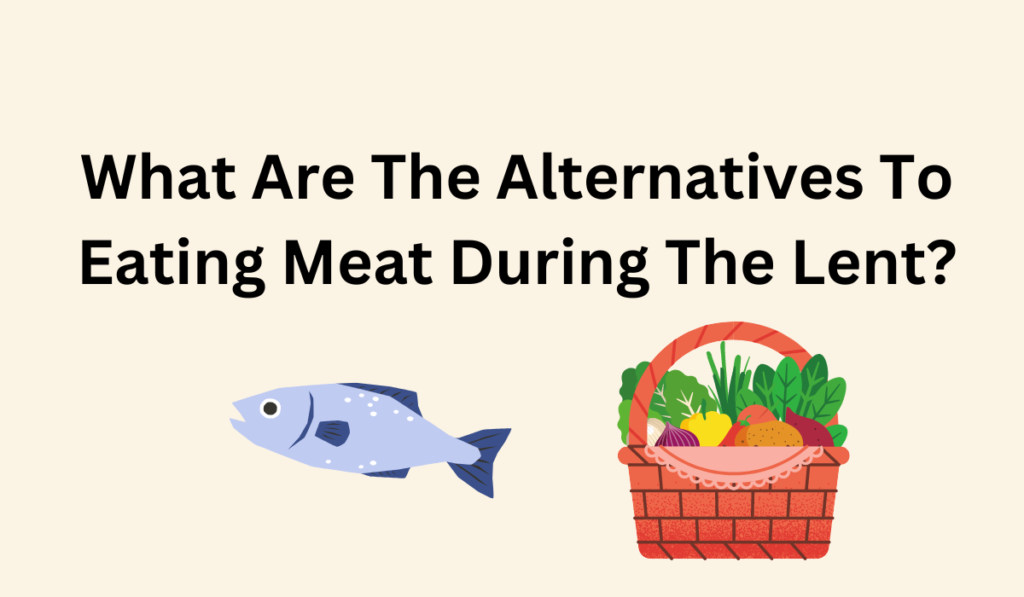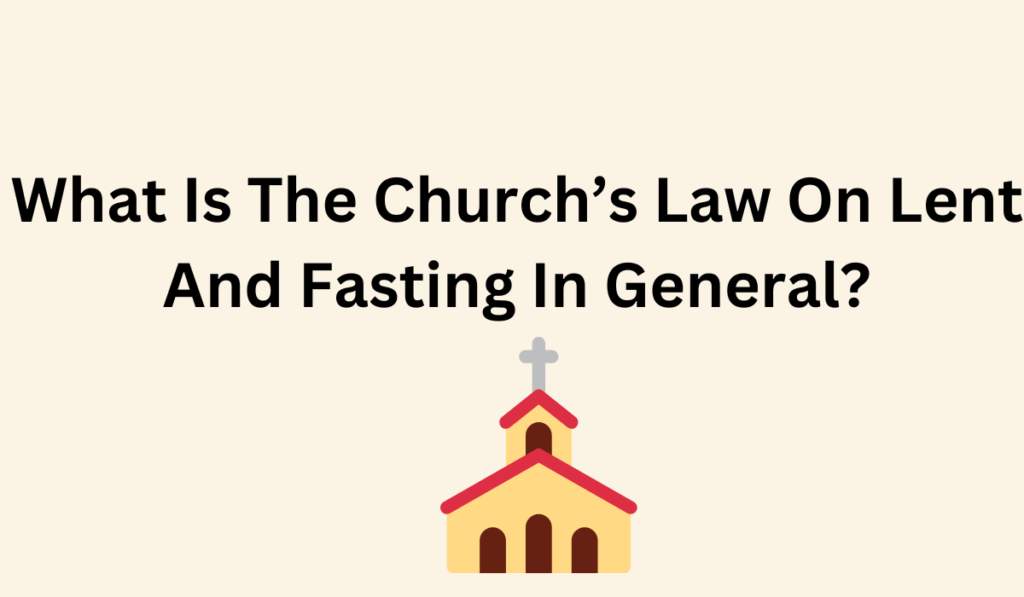
Lent is a period of fasting, repentance, and spiritual discipline in the Christian calendar, which lasts for 40 days, beginning on Ash Wednesday and ending on Easter Sunday. It is observed by various denominations, including Roman Catholic, Orthodox, Anglican, Lutheran, and Methodist churches.
During Lent, many Christians choose to give up certain luxuries or habits as a form of sacrifice, with the aim of deepening their spiritual awareness and discipline. This can include abstaining from meat, alcohol, or sweets, or giving up activities such as social media or television.
Lent is also a time for reflection, self-examination, and repentance. Christians may attend extra church services, participate in prayer and meditation, and engage in acts of charity or service to others.
The final week of Lent is known as Holy Week and includes the commemoration of Jesus’ entry into Jerusalem on Palm Sunday, the Last Supper on Maundy Thursday, the Crucifixion on Good Friday, and the Resurrection on Easter Sunday.
So, Can You Eat Chicken During Lent?
Whether or not one can eat chicken during Lent depends on the specific rules and traditions of the Christian denomination they follow. In general, however, many Christian denominations, including the Roman Catholic Church, consider chicken to be a type of meat and therefore off-limits on Fridays during Lent.
Traditionally, Catholics are asked to abstain from meat on Ash Wednesday and all Fridays during Lent. The abstinence from meat is seen as a form of sacrifice and penance, which helps to remind the faithful of Jesus’ sacrifice on the cross.
What Can You Eat During Lent?
Lent is a time of fasting, sacrifice, and spiritual reflection for many Christians around the world. During this time, many people wonder what they can eat and what they should avoid. The practice of abstaining from meat is seen as a form of sacrifice and penance that helps to remind the faithful of Jesus’ sacrifice on the cross.
While meat is usually off-limits during Lent, there are many other foods that people can enjoy. For example, seafood, vegetables, fruits, and grains are all great options for those looking to maintain a balanced and healthy diet during Lent.
It’s important to note that some Christian denominations have different rules regarding what can be eaten during Lent. For example, some Orthodox Christians follow a stricter fast that involves abstaining from all animal products, including dairy and eggs.
What Are The Alternatives To Eating Meat During The Lent?

During Lent, many Christians choose to abstain from meat as a form of sacrifice and penance. While this can be challenging, there are many alternative foods and dishes that one can enjoy instead of meat. Here are some ideas for alternatives to eating meat during Lent:
- Seafood: Many Christian denominations permit the consumption of seafood during Lent, as it is not considered to be meat. This can include fish, shrimp, crab, and other shellfish. Seafood can be grilled, baked, or sautéed and served with vegetables, rice, or pasta.
- Vegetables: Lent is a great time to experiment with new vegetarian recipes. Vegetables can be roasted, stir-fried, or blended into soups and stews. Try making vegetable lasagna, stuffed peppers, or a hearty vegetable curry.
- Beans and legumes: Beans and legumes are a great source of protein and can be used in a variety of dishes. Try making a chickpea and vegetable tagine, lentil soup, or black bean chili.
- Eggs and dairy products: Some Christian denominations allow the consumption of eggs and dairy products during Lent. This can include scrambled eggs, omelets, quiches, and frittatas, as well as cheese, yogurt, and milk.
- Meat substitutes: There are many meat substitutes available on the market today, including plant-based burgers, sausages, and meatballs. These can be grilled, baked, or sautéed and served with a variety of sides.
In conclusion, while giving up meat during Lent can be challenging, there are many alternatives available that are both delicious and nutritious. Whether one chooses to eat seafood, vegetables, beans, or meat substitutes, the key is to embrace the spirit of sacrifice and penance and use this time to deepen one’s faith and connection to God.
What Are The Benefits Of Lent?
St. Thomas Aquinas (AD 1225) identified the fundamental advantages of practicing Lenten fasting as follows:
1. Atonement for sin
One of the primary benefits of observing Lent is atonement for sin. Lent is a time of penance and sacrifice, and through fasting, prayer, and acts of charity, Christians seek to make amends for their sins and draw closer to God.
By giving up something that is important to them, such as food or other indulgences, Christians show their commitment to living a more virtuous life and demonstrate their desire to be forgiven for their past transgressions.
Lent is a time to reflect on one’s own shortcomings, seek forgiveness, and strive to be a better person in the future.
2. For Spiritual Benefits
In addition to atonement for sin, there are many spiritual benefits of observing Lent. Through fasting, prayer, and acts of charity, Christians seek to deepen their faith and draw closer to God.
Lent provides an opportunity for self-reflection and introspection, as Christians take the time to examine their lives, consider their priorities, and recommit themselves to living according to God’s will.
By making small sacrifices, such as giving up a favorite food or pastime, Christians learn to focus on the things that truly matter in life and become more attuned to God’s presence in their lives.
Lent is a time of spiritual renewal and growth, and through their observance of the season, Christians seek to strengthen their connection to God and live more virtuous lives.
3. Fasting Helps Suppress the Lusts of the Flesh
Another benefit of observing Lent is that fasting helps to suppress the lusts of the flesh. In many Christian traditions, the act of fasting is seen as a form of discipline and self-control, which can help to counteract the desires and impulses of the body.
By denying oneself food or other pleasures, Christians learn to exercise restraint and discipline in their daily lives, which can have a positive impact on their spiritual well-being.
Fasting can also help to quiet the mind and create a greater sense of inner peace, allowing Christians to focus more fully on their relationship with God. In this way, the practice of fasting during Lent can be a powerful tool for personal growth and spiritual development, helping individuals to cultivate greater self-awareness and achieve a deeper connection to God.
4. Fasting Makes Us Take Responsibility for Our Sins and Make Amends with God
Another significant benefit of fasting during Lent is that it makes us take responsibility for our sins and seek to make amends with God. By voluntarily giving up something that we enjoy, such as food or other indulgences, we demonstrate our willingness to sacrifice for our faith and show our commitment to living a virtuous life.
Fasting during Lent helps us to confront our weaknesses and shortcomings, and to seek forgiveness for our sins. Through fasting, we are reminded that we are responsible for our actions and that we have the power to make amends with God and others for the harm we have caused.
In this way, Lenten fasting can be a powerful tool for personal growth, as it helps us to become more humble, compassionate, and aware of our own limitations. Ultimately, the goal of Lenten fasting is to deepen our relationship with God and to become more fully the person that God created us to be.
5. Fasting Helps Us Build Self Control
Lent helps us build self-control. By voluntarily giving up something that we enjoy, we exercise our willpower and learn to resist temptation. Through this practice, we develop the habit of self-discipline, which can help us in other areas of our lives, such as work, relationships, and personal habits.
Fasting during Lent also helps us to break the cycle of dependence on material things and focus on what is truly important in life. This practice can lead to a greater sense of inner peace and contentment, as we learn to appreciate the simple things in life and become less preoccupied with material possessions.
Ultimately, the goal of Lenten fasting is to help us grow in our relationship with God and to become the best version of ourselves. By developing self-control and a deeper sense of purpose, we can achieve this goal and live a more fulfilling life.
6. Fasting Empowers Us in Prayer
The act of fasting can help us to focus our minds on knowing God more deeply, and to purify our thoughts to discover the beauty and truth of the divine. When we voluntarily undertake the suffering of fasting, God sees this as a great act of love towards Him.
Through the discipline of fasting, we can gain greater clarity and understanding of God’s will and purpose for our lives and develop a closer relationship with Him. Fasting can also help to remove distractions and impediments that may hinder our spiritual growth, allowing us to experience God’s presence more fully.
Ultimately, the act of fasting is a form of spiritual discipline that can help us to draw closer to God, and to become more fully the people that He has called us to be.
What Is The Church’s Law On Lent And Fasting In General?

The fourth precept of the church is fasting, which is mandated under CCC:2043. Catholics are obliged to follow the rules and regulations governing fasting and abstinence, with the aim of attaining eternal life.
Failure to comply with the forms of penance may be deemed a violation of divine law and considered a grave sin. Committing a mortal sin, which is any grave sin done knowingly and willingly, puts one’s soul in danger.
1. Catholics are Obliged to Fast on Ash Wednesdays and Friday When the Lent Begins
Catholics are required to fast on Ash Wednesday and all Fridays during the season of Lent. Fasting in this context generally means consuming only one full meal and two smaller meals that do not equal the full meal in quantity, with no other food taken in between.
This is one of the forms of penance that Catholics are expected to observe during the Lenten season as a way of preparing themselves for the celebration of Easter.
2. Catholics from 18 to 60 are Required to Fast
According to the Catholic Church, fasting is required of all Catholics who have reached the age of 18 up to the beginning of their 60th year. This means that during the designated days of fasting, these individuals are expected to consume only one full meal and two smaller meals that, when combined, do not equal the full meal in quantity.
However, there are exceptions for those who are sick or have other health conditions, as well as pregnant or nursing women. It’s always a good idea to consult with a priest or other religious authority if you have any questions or concerns about fasting.
3. The Definition of Flesh Meat
In the context of Catholic fasting rules and regulations, “flesh meat” refers to the meat of warm-blooded animals, including mammals and birds. This excludes fish and other cold-blooded creatures.
During days of fasting and abstinence, Catholics are required to refrain from eating flesh meat, but they are allowed to consume fish and other forms of seafood. This practice is intended to encourage a spirit of sacrifice and self-discipline as part of the Catholic faith.
However, there are certain exceptions and variations in these rules depending on specific circumstances and local traditions, so it’s always a good idea to consult with a priest or other religious authority for guidance.
Conclusion
The only days during fasting periods when Christians are required to abstain from meat are Fridays and Ash Wednesdays, despite the many rules surrounding abstinence. Outside of these days, individuals may consume meat and other foods once they have broken their fast.
There is no strict law regarding the specific time of day that fasting should end, although most Christians prefer to break their fasts by 6 pm. Sick individuals may be permitted to break their fast between 12 noon and 3 pm, depending on their strength.
Infants are not expected to fast, while individuals aged 18 to 60 are required to fast and observe all associated laws.